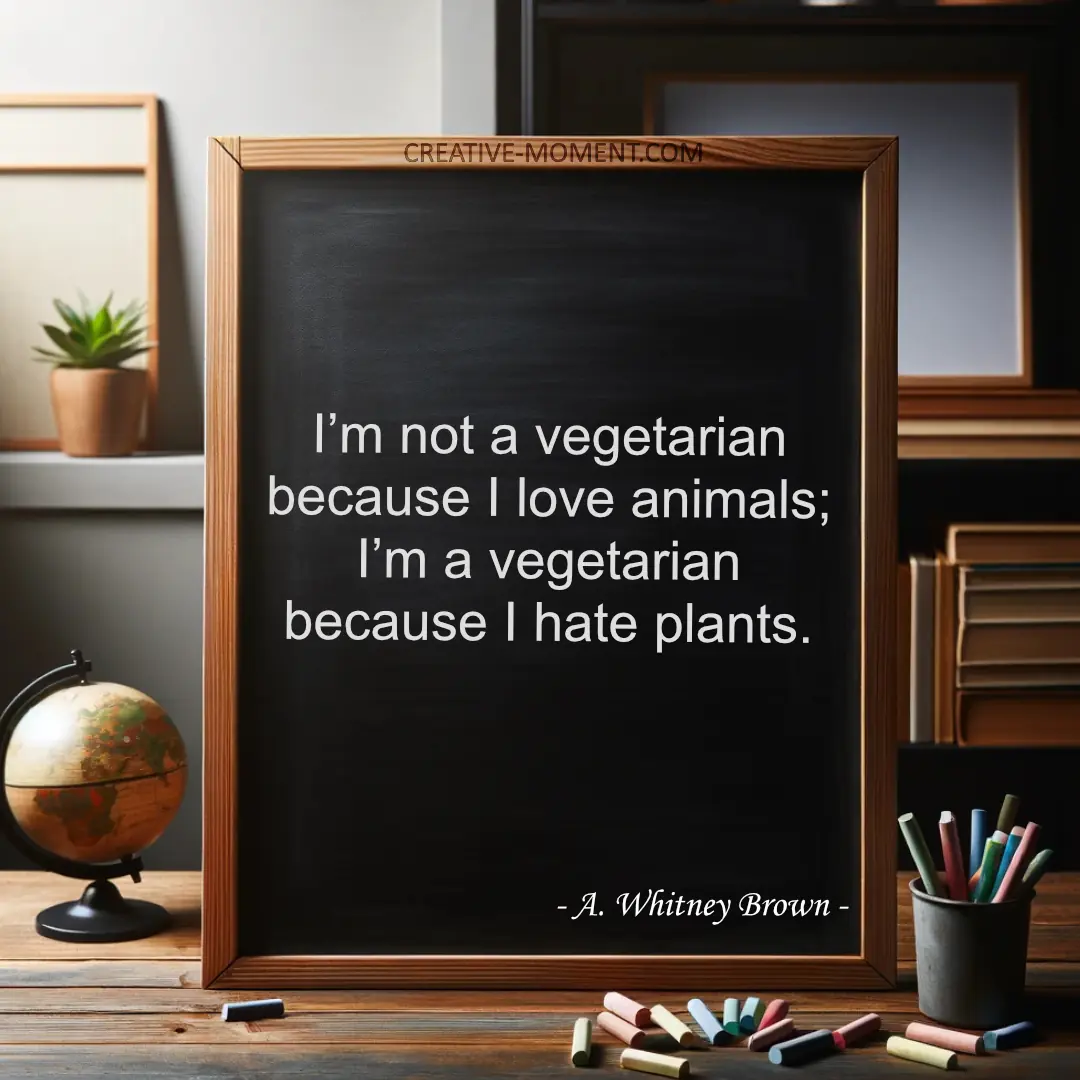Saying: I’m not a vegetarian because I love animals; I’m a vegetarian because I hate plants
Info
- Title: I’m not a vegetarian because I love animals; I’m a vegetarian because I hate plants
- Type: Sayings
- Category: Humor and Wit
- Print: Download as PDF for printing
Vegetarianism is often associated with moral superiority or ethical responsibility. With the quote “I’m not a vegetarian because I love animals; I’m a vegetarian because I hate plants.” A. Whitney Brown introduces an absurd justification – satirical, pointed, and intentionally breaking with societal expectations.
Origin and Usage of the Saying
The saying comes from A. Whitney Brown, an American satirist best known for his work on “Saturday Night Live.” The original language is English, and the exact wording is: “I’m not a vegetarian because I love animals; I’m a vegetarian because I hate plants.” The quote has circulated for many years in collections of humorous sayings, on social media, and is often used as a witty comment on dietary topics. In satirical contexts, it serves to dissolve moral conventions through absurd reversal.
Meaning and Interpretation of the Saying
The quote takes the common argument for vegetarianism – love for animals – and turns it on its head. The humor arises from the absurd shift in ethical focus: instead of compassion, it’s hatred for plants that supposedly motivates vegetarianism. This reversal challenges moral expectations and opens the door to irony.
In content and structure, the quote is a typical example of satirical reinterpretation. A. Whitney Brown plays with the logic of moral reasoning and shows how easily arguments can be turned into absurdity. The punchline is effective precisely because it replaces a morally loaded position with an implausible yet logically structured one.
The quote doesn’t criticize vegetarianism directly but uses the topic as a vehicle for humor through reinterpretation. This technique allows for a questioning of social discourse without taking a fixed position. As a result, the sentence remains ambiguous – provocative but not aggressive.
In a broader sense, the quote highlights how fragile moral narratives can be if left unexamined. Satire functions here as a stylistic device to subvert established patterns of thinking in a playful way. That is precisely what makes the quote a popular line in discussions about consumption, morality, and lifestyle.

